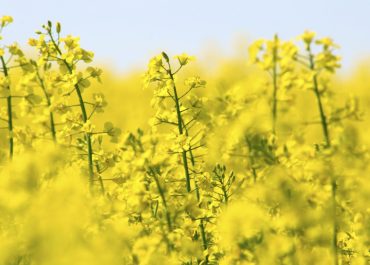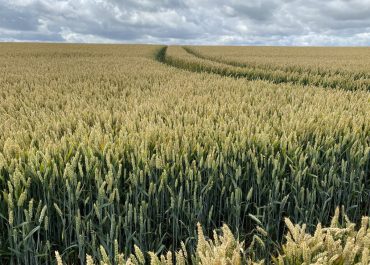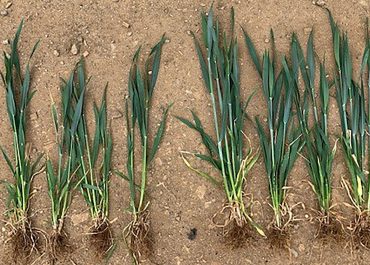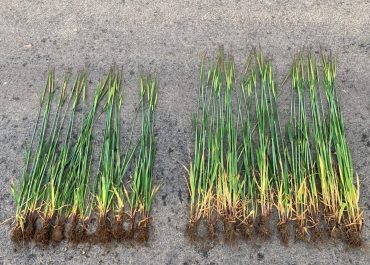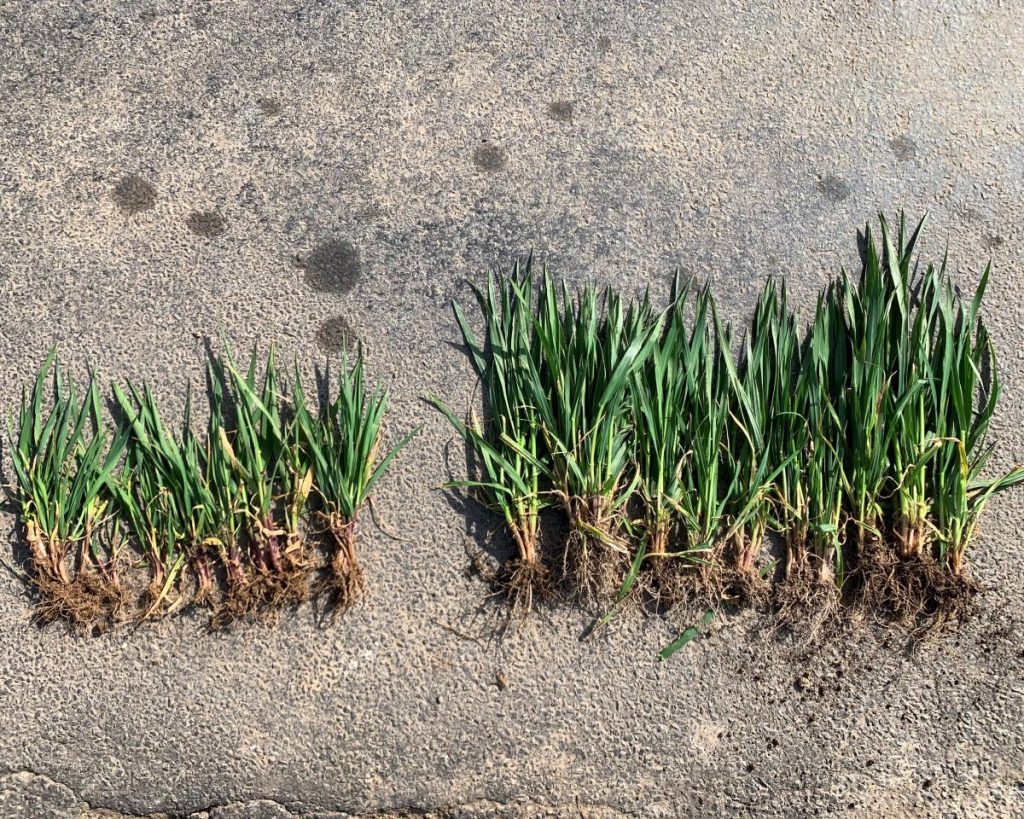Lincolnshire farmer, Tim Lamyman is synonymous with growing record combinable crop yields, so much so that he’s now outdone his previous successes.
Following Tim’s achievements in 2021, we were thrilled to learn of his recent accolades, having achieved a new world record for winter wheat with a staggering 17.96t/ha and specific weight of 83.6kg/hl with the DSV variety Champion.
As if that wasn’t enough, his stellar 2022 crop yields also saw him beat his previous world record for barley with 16.21t/ha and a specific weight of 73.2kg/hl from the variety KWS Tardis. He also holds a UK national record for winter oilseed rape with an adjusted gross output of 8.98t/ha. Congratulations, Tim!
Tim first earned a world record title in 2015 with a yield of 16.50t/ha, but this was eclipsed by a New Zealand farmer who pushed the yield up to 17.40t/ha.
A member of the Yield Enhancement Network (YEN), Tim’s latest record-breaking yields saw him scoop several well-deserved awards at the organisation’s 10-year anniversary conference:
| Gold | Best wheat, rye or triticale yield (supported by Frontier) |
| Gold | Best winter barley yield (supported by Frontier) |
| Gold | Best oilseed rape yield (supported by Bionature) |
| Bronze | Best % of potential oilseed rape yield (supported by Bionature) |
Alongside Frontier agronomists, Ben Mead and Jeremy Nicholson and GFP seed specialist, Barnaby Patchett, I have had the pleasure of working with Tim at Worlaby Farms for a number of years now. In that time we’ve often heard musings such as, “I bet it is the most perfect farm in the country,” or “I bet he is using the best and newest machinery available.”
A visit to Tim’s farm is usually sufficient to dispel both of those assumptions, confirming instead that these results are very much down to Tim’s impressive eye for detail. He is adept at judging the potential of a variety and extraordinarily skilled at extracting the best from it, with a unique understanding of how and when to use the Bionature range of micronutrients. Even when not breaking records, the farm’s average yields are eye-wateringly good and Tim has certainly mastered the art of consistency.
What made 2022 the season for more success?
2022 has generally been a good season for cereal and oilseed rape growing across the UK, despite the lack of moisture.
The results announced at the YEN conference highlighted just what a fantastic season Tim had in particular. Tim is a very knowledgeable combinable crop farmer; however, he is still always keen to improve and very eager to discuss, accept and change his approach to improve the farm’s performance.
When Tim set the record for winter barley 12 months ago at 14.2t/ha, it seemed there was little more to achieve from the two-row winter barley KWS Tardis. However, with a few changes to drilling date and crop inputs, he went on to add another 2t/ha to that record.
Of course, it’s always Tim’s decision on what is drilled and what inputs are applied. There is, however, a great deal of welcomed input from Barnaby and plant breeders such as KWS, DSV and Limagrain. Regular meetings on agronomy take place with Ben and Jeremy, with their recommendations also supported by BASF.
Both Jeremy and Ben use the mapping tools from SOYL to study crop biomass development and its evenness during the whole growing season. This can often be compared to previous seasons to cross evaluate and visualise whether the biomass target is on course or better than in the previous year.
On top of these inputs Tim’s unrivalled knowledge of the Bionature micronutrient product range and what to use, when and at what rate contributes significantly to his consistency of performance.
Much of Tim’s understanding and knowledge of Bionature nutrition has been gained through studying the crop effects on his own farm in comparative trials. Tim also spends time on background reading to exploit the micronutrients’ full potential.
Importantly though, yield attempts start with variety choice. Tim has a keen eye for a variety’s ear-shape characteristics, particularly with winter wheat. He looks at a variety’s ability to produce four to six grains across the middle florets as this is crucial to maximise yield performance, something that this year’s top farm wheat – DSV Champion – has shown it is capable of.
Evenness and vigorous emergence are important components to have in a variety too, as developing a strong root structure is vital for building on as fast as possible in the autumn. This is essential so that a large biomass can be developed and supported in the spring, forming a good foundation for high yields to be produced during the season.
Have we reached the peak with winter wheat yields at Worlaby? Personally, given Tim’s track record and admirable ambition, I doubt it. It’s also a true testament to the YEN and team involved – there are some fascinating learnings to be had from everyone within the network, which can be shared with more growers year on year too.
In fact, we are already looking at ways to push over the 18t/ha barrier, so I’d like to think it’s not out of the question to see Tim’s name in the record books again soon.
